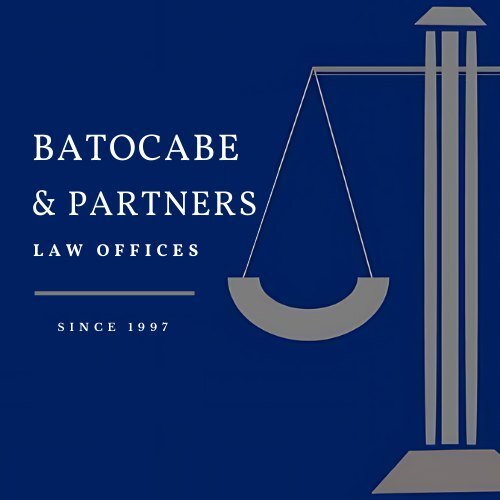Best Faith-Based Law Lawyers in Pasig
Share your needs with us, get contacted by law firms.
Free. Takes 2 min.
List of the best lawyers in Pasig, Philippines
About Faith-Based Law in Pasig, Philippines
Faith-Based Law in Pasig, Philippines, encompasses legal principles and practices that adhere to religious doctrines and ethical norms established by faith institutions. In this city, where diverse religious beliefs coexist, Faith-Based Law plays a crucial role in guiding both individual and communal conduct within religious contexts. These laws often impact personal status issues, including marriage, divorce, inheritance, and family relations, aligning with national legal frameworks where appropriate.
Why You May Need a Lawyer
Individuals may require legal assistance in Faith-Based Law for various reasons:
- Disputes related to marriage and divorce, especially when religious and civil laws intersect.
- Inheritance issues that are governed by religious principles in a multi-religious setting.
- Understanding and navigating the rights and obligations ascribed by religious laws.
- Ensuring compliance with both local laws and religious tenets in personal and business dealings.
- Resolution of conflicts within religious communities, which may involve disciplinary actions or mediation.
Local Laws Overview
In Pasig, Philippines, the legal framework accommodates various religious laws to respect the multicultural and multi-faith makeup of the society. Key aspects include:
- The Family Code of the Philippines, which is the primary legal reference for family and personal matters, works alongside religious laws to provide a comprehensive legal approach.
- Muslim Filipinos may follow the Code of Muslim Personal Laws, which applies to marriage, divorce, and inheritance among other areas, in conjunction with Shariah principles.
- Christian denominations adhere to canon laws for internal ecclesiastical matters while conforming to national laws for civil matters.
- Indigenous Peoples' Rights Act, allowing indigenous cultural communities, including those with faith-based systems, to govern themselves according to their customs and traditions.
Frequently Asked Questions
What is Faith-Based Law?
Faith-Based Law refers to legal systems and practices based on the doctrines and ethical standards of various religions. It often complements or overlaps with civil law in matters relating to personal status and community regulations.
How does Faith-Based Law apply to marriage in Pasig?
In Pasig, marriage laws are primarily governed by the Family Code, but religious ceremonies and requirements are often observed and respected, particularly for Muslims under the Code of Muslim Personal Laws and Christians under their respective denominations.
Is it necessary to have a religious marriage ceremony for it to be recognized legally?
No, a civil marriage is legally recognized in the Philippines. However, many choose to have a religious ceremony to satisfy their faith requirements.
How can religious disputes be legally addressed?
Religious disputes can often be resolved through internal arbitrations within religious communities or organizations. Where needed, assistance from a lawyer experienced in Faith-Based Law can facilitate navigating these matters within the bounds of both religious and national law.
Can a lawyer help with understanding the compatibility of religious and national laws?
Yes, lawyers knowledgeable in Faith-Based Law can help in understanding how religious laws align or conflict with national laws, ensuring compliance with both.
What is the legal stance on inheritance under Faith-Based Law?
Inheritance laws may differ based on religious backgrounds. For instance, Muslim inheritance adheres to the principles outlined in the Quran, while others follow the civil code. It is advisable to consult a lawyer for specific guidance.
How do I ensure my business complies with Faith-Based Law?
Businesses wanting to comply with Faith-Based Law need to understand any relevant religious guidelines that pertain to ethical practices. Legal advice can help ensure that such businesses align with both secular and religious obligations.
Are Faith-Based educational institutions legally recognized?
Yes, faith-based educational institutions are recognized, provided they adhere to the national educational standards and regulations.
How do I handle a legal issue that involves both religious law and state law?
It is crucial to engage a lawyer who understands the interplay between religious principles and the national legal framework to resolve such issues effectively.
Do religious laws have any impact on employment practices in Pasig?
Religious tenets can impact employment, particularly in organizations that are faith-based. However, all employment practices must comply with the national labor laws unless specific exemptions are granted.
Additional Resources
For those seeking guidance in Faith-Based Law in Pasig, the following resources may be valuable:
- Philippine Statistics Authority for marriage and divorce statistics based on religious affiliation.
- National Commission on Muslim Filipinos for guidance on Muslim Personal Laws.
- Catholic Bishops' Conference of the Philippines for issues related to Catholic ecclesiastical laws.
- Local law firms with expertise in religious and civil law applications.
Next Steps
If you require legal assistance in Faith-Based Law, consider the following steps:
- Identify your specific legal issue and any religious tenets that may apply.
- Conduct initial research to understand the intersection of religious and national laws relevant to your case.
- Consult with a qualified lawyer who specializes in Faith-Based Law to gain clearer insights and representation if necessary.
- Engage with relevant religious or governmental organizations to gather additional information or support related to your legal matter.
Lawzana helps you find the best lawyers and law firms in Pasig through a curated and pre-screened list of qualified legal professionals. Our platform offers rankings and detailed profiles of attorneys and law firms, allowing you to compare based on practice areas, including Faith-Based Law, experience, and client feedback.
Each profile includes a description of the firm's areas of practice, client reviews, team members and partners, year of establishment, spoken languages, office locations, contact information, social media presence, and any published articles or resources. Most firms on our platform speak English and are experienced in both local and international legal matters.
Get a quote from top-rated law firms in Pasig, Philippines — quickly, securely, and without unnecessary hassle.
Disclaimer:
The information provided on this page is for general informational purposes only and does not constitute legal advice. While we strive to ensure the accuracy and relevance of the content, legal information may change over time, and interpretations of the law can vary. You should always consult with a qualified legal professional for advice specific to your situation.
We disclaim all liability for actions taken or not taken based on the content of this page. If you believe any information is incorrect or outdated, please contact us, and we will review and update it where appropriate.










